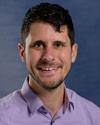Promoting Diversity Science Through the SPSP Small Conference Grant

The SPSP Small Conference Grant Program provides funding for members who wish to host small conferences relevant to the personality and social psychology field. One of the program’s recent recipients, Chadly Stern (Assistant Professor of Social-Personality Psychology at the University of Illinois, Urbana-Champaign) gave a phone interview with SPSP in which he shared his experiences in planning the Illinois Summit on Diversity in Psychological Science, including the grant application process with SPSP.
What was the spark or catalyst for organizing the Summit?

How did the Small Conference Grant help contribute to the success of the Summit?
The grant allowed us to provide travel funding to members of underrepresented groups to attend the Summit. We wanted to make sure that people from all trajectories of their career were able to attend if they wanted to, be able to participate in these discussions, and meet people who are doing research in the area of diversity science. It also allowed us to invite speakers from around the country, and even Canada, so that we weren't just drawing from people in the nearby area. This worked out well because we had a very geographically diverse group of people who attended and participated in the Summit.
How was the application process and working with the SPSP central office?
It was an incredibly smooth process. I had emailed a few questions to SPSP before submitting our application, and the contact there replied back within ten minutes, answering all of my questions. After we won the award, it was a very streamlined process in terms of what information we needed to give SPSP. The check came very quickly to the university, which allowed us to be confident that we would have the necessary funds for the Summit. There were no hiccups and everyone at SPSP was very supportive. Chad Rummel even reached out a few days before the Summit to ask if we would be interested in taking over the SPSP Twitter account and do some live tweeting from the event. This allowed us to share online in real time what ideas were being discussed and what findings were being presented. That was something I had not anticipated, but really appreciated. It allowed us to be even more inclusive in terms of who was able to participate in these discussions and engage with these ideas.
Would you recommend the Small Conference Grant Program to your peers?
It can be incredibly beneficial for the career of the person who's applying for the funding. As someone who has just started as an assistant professor, it allowed me to meet people who are doing similar types of work and are thinking about ideas in the same research domain. It can also be helpful for graduate and undergraduate students, as they were able to participate in mentoring sessions with experts in the area of diversity science. They received feedback from successful researchers, and it will hopefully be a motivating boost for students to continue pursuing a career in research.
Were there any presentations or workshops that stood out to you?
The keynote address by Enrique Neblett. He proposed a manifesto for psychological science and talked about how diversity needs to be an integral part of psychological science—not just something existing on the side as an afterthought. It should be a central part of everything we do, whether it’s using examples related to diversity and inequality when you're talking about statistics and quantitative ideas or pushing to have more diverse samples in research. For example, we aren’t able to simply generalize what white 18-year-old college students are doing in the lab, but need to know how broadly our findings can generalize and exactly where things might differ across groups due to the unique experiences that racial minorities, women, and sexual minorities have.
So what’s next? Will you publish outcomes?
We're putting together a proposal for the Journal of Social Issues in the hopes of doing a special issue on the Summit. Many of the speakers gave very broad talks, and each discussed where we are in the field in certain areas of research, whether it be racial bias in the criminal justice system, thinking beyond binary representations of race, or considering the experiences of multi-racial and bi-racial people. Each speaker will write a piece that doesn't necessarily cover everything from their talk, but at least covers a review of their area of work and where they see it going, or provides some kind of new empirical contribution that may have stemmed from the work they were discussing at the Summit. We think this will be a great way for people who weren't able to attend to have access to these ideas, and help these conversations about diversity in psychological science to extend beyond the Summit.
What other effects do you hope the Summit had on attendees or the field in general?
Hopefully, it can galvanize broader discussions about how to best approach and address these types of issues. For example, we hope that it might motivate people to go back to their own universities and start having these types of conversations with their department and other people in the university. Change often starts with people simply having more conversations. So whether it's at the University of Illinois or elsewhere, our hope is that these conversations continue to occur and that future summits and conferences continue to promote these discussions.
Interested in hosting your own conference? Applications from full members of SPSP are now being accepted through July 1, 2018. To learn more and apply, click here.

